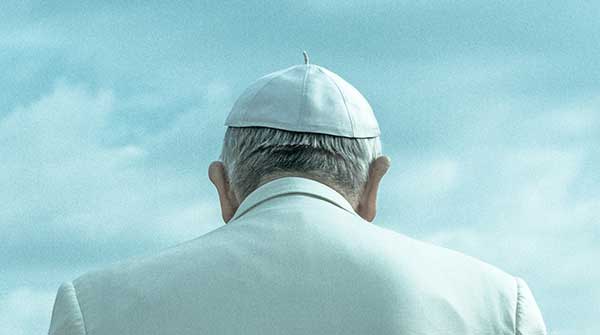Francis is pushing for long-needed changes but is facing a great deal of criticism within the church’s walls
 Pope Francis is perhaps the most loved and respected world leader, particularly in the global south. That love and respect were again demonstrated on his visit to two of the world’s most troubled countries, the Democratic Republic of the Congo (DRC) and South Sudan.
Pope Francis is perhaps the most loved and respected world leader, particularly in the global south. That love and respect were again demonstrated on his visit to two of the world’s most troubled countries, the Democratic Republic of the Congo (DRC) and South Sudan.
What is there about Francis that makes him so different from other powerful individuals?
If you examine the reactions of the crowds listening to him in the DRC, you will notice an extremely positive response when he speaks words of truth. The DRC is a beautiful country; its vast forests allow the world to breathe. Its people are like precious diamonds, giving beauty to our humanity.
Yet, few other parts of the world have been as exploited as Congo. This was the case throughout the slave trade, the years of the Congo Free State, and Belgian colonization, which continues to this day. Colonial exploitation has been replaced by post-colonial exploitation. Today, in the face of mining-funded wars now ravaging this beautiful country, Francis called upon the people of the DRC to lay down their weapons, put aside their disputes, and build their country together.
 Photo by Nacho Arteaga |
| Related Stories |
| What politicians must learn from Pope Francis’ leadership style
|
| Of Popes and American politics
|
| The overwhelming imagery of the Crucifixion
|
The truths spoken by Francis are reminiscent of the words of Patrice Lumumba, the man who led the Congo to independence and was then murdered by agents of the United States and Belgium. They are also consistent with everything Francis has said and tried to achieve throughout his papacy and his entire life.
It is interesting to note that Pope Francis is more respected around the world than the institution he represents. Looking back over the history of the Roman Catholic Church, perhaps the greatest miracle is that it continues to exist. Church leaders gave kings the power to kill, exploit and enslave other human beings. The leadership of the church promoted sexism and intolerance. Officials continue to shelter pedophiles and excommunicate those who support a female priesthood.
At the same time, the social encyclicals of recent centuries (documents written by various popes) express Christian ideals that are arguably more radical than the views of Marx and Engels.
Francis is pushing for long-needed changes and is facing a great deal of criticism within the church’s walls. Perhaps one of the reasons why he is so loved and respected around the world is because we know this.
Many will rejoice when, despite internal opposition, an official church document is published and shared by Francis rescinding the papal bulls of discovery. European colonialism was justified by the Catholic Church and continues to do incalculable damage. It is, therefore, significant that in the twilight of his life, Pope Francis only travels to parts of the world most ravaged by the lies of colonialism to speak words of healing.
It serves us all well to listen attentively.
I lived in the Congo and know exactly what Francis was talking about and can attest to its truthfulness. Thoughts of my time working among Congolese have given me a lifelong supply of gratitude and joy. My greatest regret is having only spent two years in that sacred place.
It is important to remember that Francis’s message to the people of the Congo is for all of us because, in many ways, the DRC is a microcosm of our planet. Each human being is a beautiful diamond, our planet is precious and allows us to breathe, yet we are destroying ourselves by destroying what is beautiful.
We thrive as humanity when the most vulnerable among us prosper. It’s time to put aside our weapons and our greed. It is time to truly begin to live.
Gerry Chidiac specializes in languages, genocide studies and works with at-risk students. He is the recipient of an award from the Vancouver Holocaust Education Centre for excellence in teaching about the Holocaust.
For interview requests, click here.
The opinions expressed by our columnists and contributors are theirs alone and do not inherently or expressly reflect the views of our publication.
© Troy Media
Troy Media is an editorial content provider to media outlets and its own hosted community news outlets across Canada.

